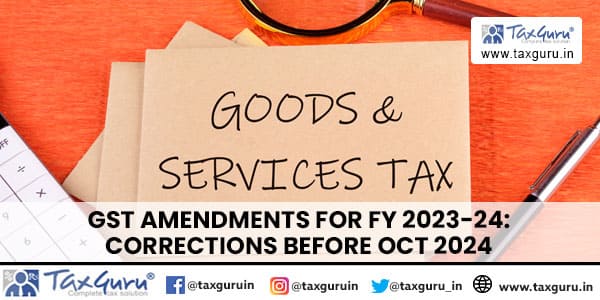In terms of Regulation 38 of the SEBI (Listing Obligations and Disclosure Requirements) Regulations, 2015 (LODR), the listed entities (except entities listed on Innovators Growth Platform without making a public issue) are required to comply with the minimum public shareholding (MPS) of 25% as specified in Rule 19(2) and Rule 19A of the Securities Contracts (Regulation) Rules, 1957 (SCRR) in the manner as specified by the Securities and Exchange Board of India (SEBI) from time to time.
Furthermore, where the public shareholding in a listed company falls below 25% at any time, such company is required to bring the public shareholding to 25% within a maximum period of 12 months from the date of such fall in the manner specified by the SEBI.

Nonetheless, where the public shareholding in a listed company falls below 25%, as a result of implementation of the resolution plan approved under section 31 of the Insolvency and Bankruptcy Code, 2016, such company is required to bring the public shareholding to 25% within a maximum period of 3 years from the date of such fall, in the manner specified by SEBI.
Moreover, every listed public sector company whose public shareholding falls below 25% at any time after the commencement of the Securities Contracts (Regulation) (Second Amendment) Rules, 2018, is required to increase its public shareholding to at least 25%, within a period of 2 years from such fall, in the manner specified by SEBI.
SEBI, vide circular no. SEBI/HO/CFD/CMD/CIR/P/43/2018 dated February 22, 2018, and circular no. SEBI/HO/CFD/PoD2/P/CIR/2023/18 dated February 03, 2023, has permitted different methods that may be used by listed entities to achieve compliance with the MPS requirements.
Methods that may be used to achieve MPS by listed entities (except entities listed on Innovators Growth Platform without making a public issue), shares of which are already listed on the Stock Exchange(s):
|
SL. NO. |
PARTICULARS |
METHOD |
|
1 |
Further Public Offer (“FPO”) which may include an Offer for sale (“OFS”) of shares | Issuance of new shares by way of FPO that may be along with selling of existing shares held by promoter(s) / promoter group, to the public through prospectus |
|
2 |
OFS of shares held by promoter(s) / promoter group to public through prospectus | Existing promoters may dilute their shares by offloading a certain portion of their holding. Refer to the SEBI circular no. SEBI/HO/MRD/MRD-PoD-3/P/CIR/2023/10 dated January 10, 2023 |
|
3 |
Rights Issue | Promoter(s) / promoter group shareholders shall forgo their entitlement to equity shares that may arise from such rights issue. |
|
4 |
Bonus Issue | Promoter(s) / promoter group shareholders shall forgo their entitlement to equity shares that may arise from such bonus issue. |
|
5 |
Qualified Institutions Placement | Issue of eligible securities to qualified institutional buyers (“QIB”) on a private placement basis and may include an OFS of specified securities by the promoters and/or promoter group on a private placement basis. |
|
6 |
Sale of shares held by promoter(s) / promoter group in the open market
Note:
|
Either:
1. Promoter(s) / Promoter group can sell up to 2% of the total paid-up equity share capital of the listed entity, subject to 5 times’ average monthly trading volume of the shares of the listed entity, every financial year till the due date for MPS compliance as per the SCRR (or) 2. Promoter(s) / Promoter group can sell upto a maximum of 5% of the paid-up capital of the listed entity during a financial year subject to the condition that the public holding in the listed entity shall become 25% after completion of such sale. The sale can be a single tranche or in multiple tranches not exceeding a period of 12 months and the amount of shares to be sold shall not exceed the trading volume of the shares of the listed entity during the preceding 12 months from the date of announcement. |
|
7 |
Employee Stock Option (“ESOP”) | Issuance to shares to eligible employees subject to not exceeding 2% of the of the paid-up equity share capital. Promoter(s) / Promoter group shall not be allotted any shares. |
|
8 |
Transfer of shares held by promoter(s) / promoter group
Note: Promoter and Promoter Group shall not subscribe to the units of such ETF to which shares have been transferred by promoter(s) / promoter group entities for the purpose of MPS compliance. |
Transfer of shares to an Exchange Traded Fund (“ETF”) managed by a SEBI-registered mutual fund, subject to a maximum of 5% of the paid-up equity share capital. |
|
9 |
Any other method, as may be approved by SEBI on a case-to-case basis. | The listed entity may approach SEBI with an application containing relevant details to obtain prior permission. |
For the companies that are unlisted and planning to list their shares on stock exchange(s) will have to issue the new shares in such a manner that post-issue MPS is maintained at minimum of 25%.
Note: “Promoter” and “Promoter Group” shall have the same meaning as assigned to them respectively in clauses (oo) and (pp) of sub-regulation (1) of regulation 2 of the Securities and Exchange Board of India (ICDR) Regulations, 2018.


























